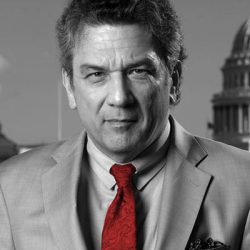Federal criminal defense attorney Solomon Wisenberg provides commentary regarding the January 6 Committee’s recent hearing focusing on all of the advisors who told Trump he had lost the 2020 election fairly and how relevant it will be to any decision by AG Merrick Garland to charge Trump with a federal crime as the media explains willful blindness in dramatic tones.
As published in the White Collar Crime Prof Blog
Willfully Blind As To What?
By Solomon L. Wisenberg
The January 6 Committee spent much of Monday’s hearing focusing on all of the advisors and experts who told Donald Trump that he lost the 2020 election fair and square and not through vote fraud. As political theatre it was impressive, but I’m not sure how relevant it will be to any decision by AG Merrick Garland to charge Trump with a federal crime. Since the testimony was aired, however, multiple cable news commentators have explained the concept of willful blindness in dramatic tones. The white collar world is well versed in the doctrine and no doubt many white collar defendants have endured guilty verdicts courtesy of the willful blindness jury instruction, which is far too frequently handed out. But a criminal defendant must be willfully blind with respect to some conduct that the criminal law prohibits. Is obstructing a Congressional proceeding any less obstructive, or seditious conspiracy any less seditious, if the defendant truly believes he or she is in the right? If half of Trump’s advisors told him the election was rigged would that have justified his aiding and abetting an attempt, “by force to prevent, hinder, or delay the execution of any law” of the United States or an attempt to obstruct by force a Congressional proceeding? I think not, any more than the efforts by the opponents of Brett Kavanaugh’s nomination to obstruct and delay his hearing were justified by their sincere belief that he was evil personified and would destroy the Constitution as they interpreted it. And the analysis does not change if we confine ourselves to the non-violent white collar world. I believe that the efforts to fashion a crime out of the GOP’s flouting of the Electoral Count Act are farfetched. But assuming you could do it, is at any defense that you think your guy actually won? If Trump truly believed that he won the election would it justify paying a $1 million bribe to Pence to delay certification? The question is whether the crime was committed with the requisite intent–not whether your motives were pure or evil. There is an additional problem here, a First Amendment problem, in attempting to criminalize supposedly false political speech. Our courts have, largely, not tolerated this approach in the last 60 years. Few commentators seem to recognize this reality.


